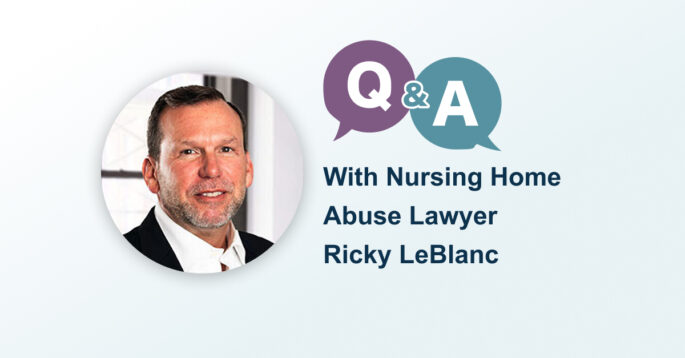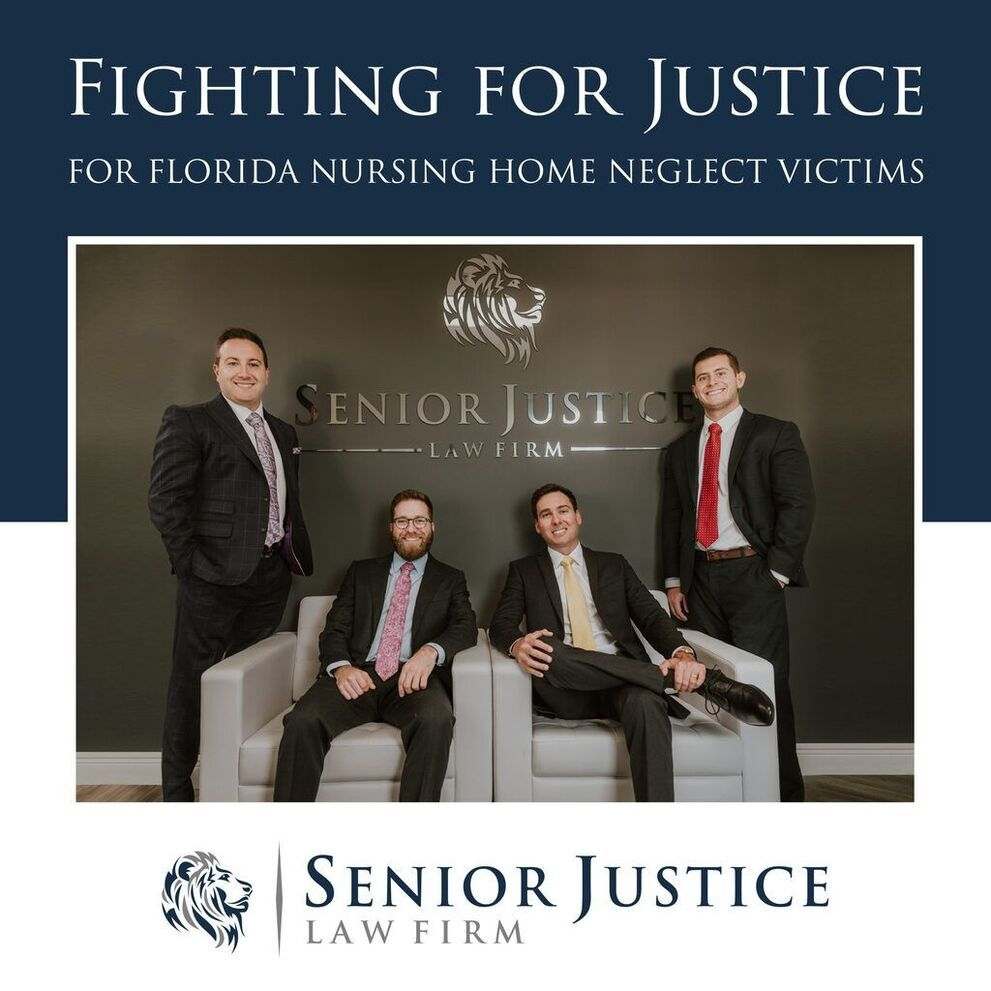Trick Realities Every Legal Representative Ought To Know Concerning Senior Citizen Abuse Regulation
Elder abuse is a complicated concern that requires lawful focus. Legal representatives should understand the nuances of pertinent regulations, including state-specific laws and government requireds. Comprehending the kinds of abuse, reporting commitments, and offered lawful solutions is crucial for reliable advocacy. As the maturing population expands, so also does the requirement for legal experts to be equipped with the best expertise. The ramifications of this knowledge are extensive, leading to essential concerns about defense and justice.
Recognizing Elder Abuse: Meanings and Types
Elder misuse includes a variety of damaging behaviors guided towards older grownups, commonly causing physical, psychological, or financial harm (Nursing Home Abuse). This misuse can show up in several forms, consisting of physical abuse, which entails inflicting bodily injury, and psychological misuse, characterized by emotional torment and manipulation. Overlook, another substantial type, takes place when caretakers fall short to supply required treatment, bring about degeneration in the senior's health or wellness. Financial exploitation entails the unauthorized use of an elder's funds or possessions, typically committed by those in relied on settings. Additionally, sexual assault, although less often reported, stands for an extreme violation of an elder's self-respect. Recognizing these interpretations and kinds is essential for identifying the indicators of older abuse and ensuring the security and civil liberties of older grownups. Understanding and education concerning these numerous forms can equip communities to intervene and support those in susceptible situations efficiently
Lawful Framework: Federal and State Rule
While numerous types of senior misuse are recognized, the lawful structure attending to these problems is vital for shielding older adults. At the federal level, regulations such as the Senior Justice Act develop stipulations to stop and react to older exploitation, forget, and misuse. This act gives funding for research study, training, and sources targeted at enhancing the security of susceptible seniors.
State regulations additionally play a crucial duty, as each state has its own laws defining older misuse and outlining enforcement systems. These legislations often incorporate a variety of abuses, consisting of physical, emotional, economic, and forget. In addition, some states have applied specific older misuse units within regulation enforcement companies to concentrate on these situations.
With each other, government and state regulations create a thorough framework designed to fight senior abuse, guaranteeing that older adults get the defense and support they need in their communities.
Compulsory Reporting Requirements for Specialists
Required coverage needs for professionals describe the responsibilities to report suspected elder abuse to the proper authorities. Failing to follow these commitments can result in substantial lawful repercussions, consisting of fines and potential civil liability. Comprehending these needs is important for professionals dealing with at risk populations to ensure their safety and security.
Coverage Commitments Introduction
Exactly how can experts guarantee the safety and security of susceptible grownups? One substantial method is with understanding and sticking to mandatory coverage needs. Many territories enforce legal commitments on certain professionals-- such as health care workers, social workers, and legislation enforcement authorities-- to report suspected elder misuse. These regulations intend to protect susceptible grownups by making certain that any indications of abuse or overlook are immediately investigated. Professionals should recognize the details indications of elder abuse, including physical, emotional, and financial exploitation. In enhancement, reporting need to be carried out in a timely way to facilitate swift intervention. By satisfying these reporting obligations, specialists play a crucial role in safeguarding the wellness of senior people and promoting a society of responsibility and caution against abuse.
Legal Effects for Non-Reporting
Failure to comply with mandatory reporting demands can lead to significant lawful repercussions for experts tasked with protecting at risk adults. Experts such as health care providers, social workers, and police authorities are legitimately bound to report presumed situations of elder misuse. Failure to do so may lead to civil liabilities, including penalties or claims. In some jurisdictions, non-reporting can lead to criminal charges, possibly leading to misdemeanor or felony convictions. Furthermore, specialists may deal with corrective actions from licensing boards, including suspension or cancellation of their licenses. These lawful effects underscore the relevance of adhering to reporting laws, which are made to protect susceptible populaces and ensure that situations of elder misuse are resolved without delay and suitably.

Indications and Signs of Senior Citizen Misuse
Identifying the symptoms and signs of senior misuse is important for guarding vulnerable individuals. Older abuse can show up in different kinds, including physical, psychological, monetary, and neglect. Physical indicators may consist of unexplained bruises, cracks, or indications of restriction. Psychological abuse typically presents as withdrawal, fearfulness, or unexpected changes in behavior. Targets may exhibit signs of anxiety, confusion, or clinical depression.
Financial misuse might be indicated by sudden changes in economic status or missing belongings, while overlook can be determined via bad hygiene, malnutrition, or unsafe living problems. It is essential to keep in mind that these indicators can overlap, and one sign alone may not symbolize abuse. Observing numerous signs and symptoms in combination can supply a more clear picture. Caretakers and family members must continue to be attentive and proactive in recognizing these indicators to guarantee the health of older adults and help with prompt treatment when required.
Lawful Treatments Offered for Victims
Sufferers of elder misuse have several legal treatments offered to them, using opportunities for justice and defense. These solutions include civil claims for damages, prosecution alternatives against wrongdoers, and the opportunity of obtaining safety orders and restrictions. Each option offers to attend to the damage experienced by sufferers and to aid stop more misuse.

Civil Legal Actions for Damages
Elder abuse targets typically look for justice with civil lawsuits, which offer an important legal solution for those hurt by negligence or willful transgression. These suits permit sufferers or their families to assert problems for physical, psychological, or economic harm sustained due to the actions of caregivers, nursing homes, or various other accountable celebrations. Common claims in these cases include neglect, deliberate infliction of emotional distress, and breach of fiduciary task. Victims can look for offsetting damages to cover medical expenditures, pain and suffering, and revengeful damages targeted at discouraging future misbehavior. Civil legal actions not only use financial alleviation but additionally offer to hold abusers answerable, thus contributing to more comprehensive societal changes in the treatment of at risk senior populations.
Prosecution Options
A considerable variety of senior misuse instances may also lead to prosecution, giving an additional avenue for justice beyond civil treatments. District attorneys can pursue charges for various offenses, including attack, neglect, or fraudulence, depending upon the specific situations of the misuse. Offender prosecution offers not only to penalize wrongdoers but additionally to discourage more misuse and safeguard vulnerable people. The lawful requirements for criminal cases vary from civil instances, typically calling for a greater worry of proof, commonly "past an affordable uncertainty." Targets or their advocates might collaborate with police to report events, ensuring that the legal system holds criminals responsible. Generally, criminal prosecution is a necessary device in the fight against elder abuse, reinforcing social standards versus such crimes.
Safety Orders and Restraints
When individuals deal with threats or harm due to older abuse, protective orders and restraints become necessary legal treatments to protect their safety and security and wellness. Safety orders, often provided by courts, serve to legally prohibit abusers from calling or coming close to targets, thereby offering prompt relief. These orders can differ in duration and may consist of specific provisions tailored to the sufferer's needs. Restrictions, on the various other hand, include physical measures taken in care facilities or in your home to protect against further injury, though they must follow legal standards to guarantee they do not infringe on the older's rights. Generally, these lawful systems intend to empower victims, offering them a structured method to seek safety and security and protection from recurring misuse.
The Function of Guardianship in Securing Seniors
Guardianship plays the original source a crucial duty in guarding the well-being of senior citizens, specifically when they are incapable to make enlightened decisions about their care and financial resources. This lawful arrangement assigns an accountable person or entity to oversee the individual and financial events of an incapacitated senior. Guardianship is especially vital in situations where elders are prone to neglect, abuse, or exploitation, as it offers a safety structure ensuring their civil liberties and demands are focused on.
The obligations of a guardian include making healthcare decisions, taking care of residential property, and guaranteeing that the elderly's living problems are secure and helpful. Furthermore, guardians are required to follow legal requirements and record frequently to the court, advertising liability and openness. By assisting in oversight, guardianship functions as a crucial system to secure seniors, cultivating their dignity and boosting their lifestyle in potentially harmful scenarios.
Resources for Legal Professionals and Campaigning For Groups
Accessibility to substantial sources is vital for attorneys and advocacy teams functioning to fight elder abuse and protect susceptible elders. Various organizations provide websites vital information, including the National Fixate Senior Citizen Misuse, which provides study, training, and standards on senior misuse prevention. Legal professionals can take advantage of state-level agencies that provide details statutes and guidelines concerning senior protection.
Furthermore, several advocacy groups, such as AARP and the Senior Justice Coalition, supply sources, legal tools, and networking opportunities. Online systems, like the Legal Solutions Company, grant accessibility to legal help resources for low-income seniors.
Continuing education and learning is vital; consequently, webinars and seminars held by lawful organizations can boost expertise and abilities. Cooperation with health care specialists and social workers is also crucial to produce a multidisciplinary strategy to resolving senior abuse. Using these sources allows lawyers and advocacy teams to effectively advocate for the legal rights and security of the senior population.
Frequently Asked Questions
Exactly How Can Legal Representatives Stay Updated on Senior Abuse Legislation Modifications?
Attorneys can remain updated on elder misuse regulations changes by signing up for legal newsletters, attending pertinent seminars, taking part in expert associations, and routinely evaluating state and government legal resources and updates essential to older legislation.
What Are Usual Defenses Against Elder Abuse Accusations?
Typical defenses against elder abuse allegations include demonstrating absence of intent, proving consensual activities, offering proof of psychological inability in the accuser, and showing adherence to caregiving requirements. Abuse Lawyer. Each situation calls for mindful evaluation of situations
Exist Specific Training Programs for Lawyers on Senior Abuse?
Yes, various organizations provide certain training programs for lawyers concentrated on elder abuse. These programs aim to boost understanding of lawful frameworks, case monitoring, and campaigning for techniques, equipping attorneys to effectively stand for prone populations.
How Does Senior Abuse Influence Estate Preparation?
Older abuse greatly makes complex estate planning by presenting problems of capability, consent, and potential exploitation. Legal representatives should browse these complexities to guarantee clients' dreams are valued while securing susceptible individuals from manipulation or financial damage.
What Role Do Family Members Play in Elder Abuse Situations?
Relative frequently serve twin functions in senior misuse cases, serving as both caregivers and possible wrongdoers. Their participation can make complex examinations, as commitment and psychological ties may impede reporting or resolving violent behaviors efficiently.
This abuse can show up in a number of types, consisting of physical abuse, which entails causing physical injury, and psychological abuse, identified by mental torment and manipulation. At the federal level, laws such as the Senior citizen Justice Act develop stipulations find out to stop and respond to older exploitation, neglect, and abuse. Numerous jurisdictions enforce lawful obligations on certain specialists-- such as health care workers, social employees, and regulation enforcement officials-- to report believed older misuse. Access to substantial sources is vital for legal specialists and campaigning for groups functioning to combat older abuse and protect vulnerable elders. Many organizations give vital info, including the National Facility on Elder Misuse, which provides study, training, and standards on elder abuse prevention.